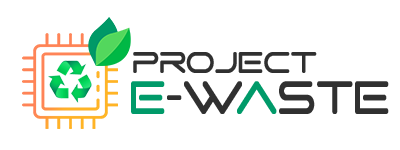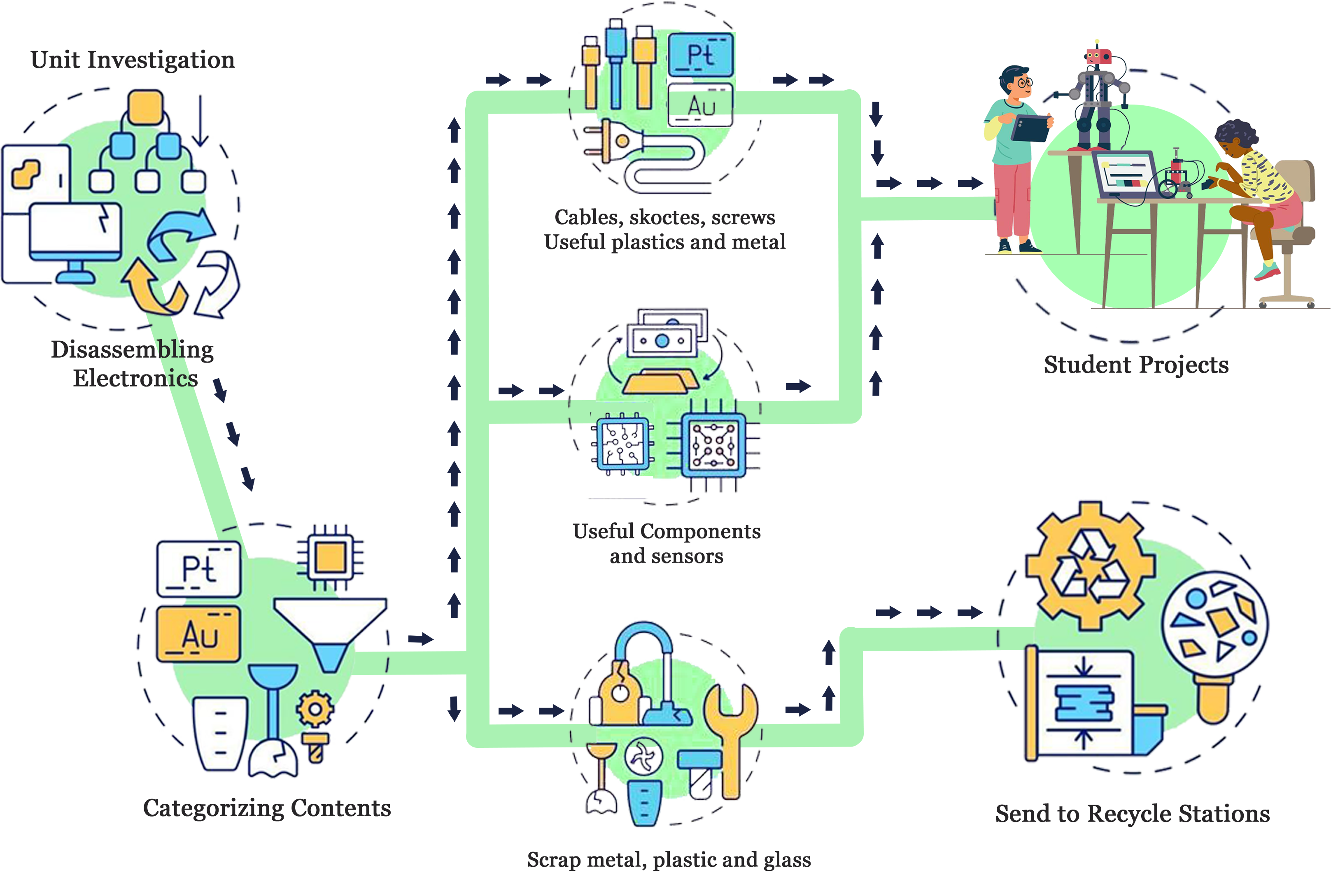
Who we are
Welcome to the E-waste project! We are students promoting responsible electronic waste disposal. Our team comprises motivated university students from various disciplines committed to sustainability and creating a better future.
Our goal is to establish a platform where undergraduates can get hands-on experience in electronics and provide recycled electronics for their projects.
List of items that are collected and not collected.
DOMESTIC E-WASTE
- LCD TVs/Monitors
- LED lamps
- Computer hardware
- Radios, DVD players
- Electric ovens /Microwave ovens
- Fans and Hair dryers
- Electronic exercise equipment
- Mobile phones / Laptops / Chargers
- Bluetooth speakers/ Earbuds
- Cameras / CCTV equipment
OFFICE E-WASTE
- Photocopy machines
- UPS units / UPS batteries
- Printers/ Scanners
- Projectors / Speakers
- Access control equipment (fingerprint machines)
- Network equipment
- Telephone/Fax/ Intercom equipment
- Barcode readers/ POS machines
AUTOMOBILE E-WASTE
- Dashboard electronics
- LED headlights
- Hybrid batteries / EV batteries
- Motors / Alternators
- Switches
- Sensors
- Cables
- Relays
- Heaters
INDUSTRIAL E-WASTE
- Inverters/ VFDs
- CNC machines
- Elevator electronic components
- Sign board displays
- Air conditioners
- Automation equipment
- Power supply units
- Vending machine hardware
- Solar power equipment
MEDICAL E-WASTE
- Ventilators/ Insulin pumps
- Hearing aids / Electric wheelchairs
- Oximeters / Electronic thermometers
- Ultrasound machines and probes
- Centrifuges/ Spectrophotometers
- Electronic medical record systems
- Glucometers/ Weight scales
E-WASTE WE DO NOT COLLECT
- CFL bulbs/ Tube lights / Mercury lamps
- Refrigerators/ Washing machines
- CRT TVs / CRT monitors
- Leaking batteries
- CT scanners/ X-ray equipment
- Smoke detectors/ Radioactive sources
- Items containing mercury, cadmium, phosphorous
- Biohazardous equipment
What we do after collecting e-waste?

After e-waste is collected, device testing is performed. Students will thoroughly investigate the reasons for the failure of the device. The objective here is to develop device design skills of students. If the device can be reused or repaired, it will be sent to the reuse and repair section.
If reusing or repairing the device is not the best option, the device will be sent to the parting-out section. Here the device will be disassembled and the components will be separated carefully.
Students will perform part testing and the components are categorized into useful and non-useful items.
Useful items may include sensors, wires, batteries, and other components that can be reused in repairing other devices or in student projects. Non-useful items may include plastic parts and metal scraps that can be sent for recycling.
Send us your E-Waste
Call Us
Amidu Deshan (Project Lead)
+94 75 441 1124
Ridma Rathnayake (Procurement Manager)
+94 76 808 8101
Rasal Dassanayake (Tech Lead - Electronics)
+94 76 608 9329
Address
Department of Physics and Electronics,
University of Kelaniya,
Dalugama, Kelaniya,
Sri Lanka,11600.
projectewaste.edic@gmail.com

